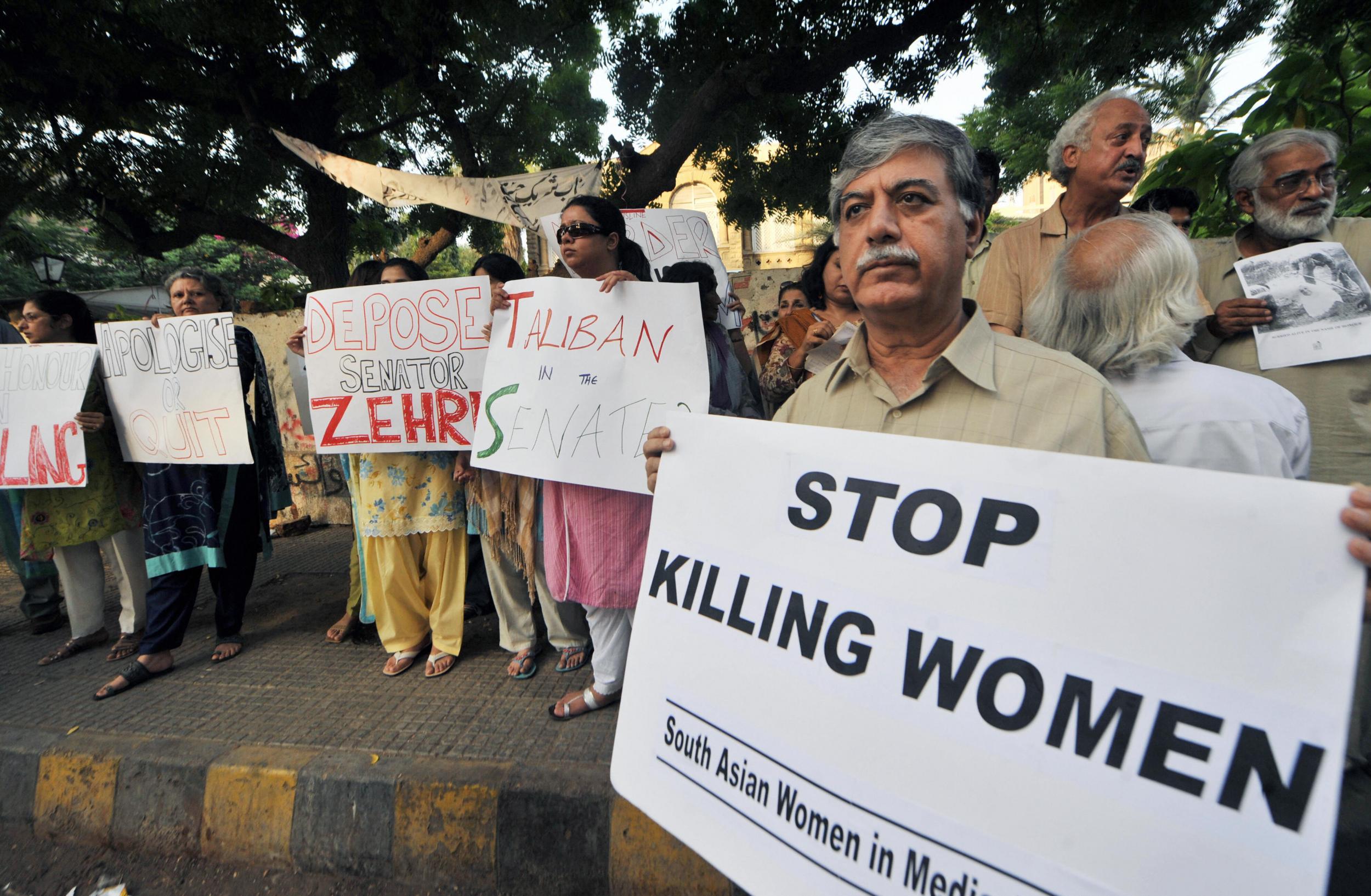Pakistan honour killing: Teenage lovers 'were electrocuted', say Karachi police
'The girl was killed and buried first, followed by the murder of the boy the next day'

Your support helps us to tell the story
From reproductive rights to climate change to Big Tech, The Independent is on the ground when the story is developing. Whether it's investigating the financials of Elon Musk's pro-Trump PAC or producing our latest documentary, 'The A Word', which shines a light on the American women fighting for reproductive rights, we know how important it is to parse out the facts from the messaging.
At such a critical moment in US history, we need reporters on the ground. Your donation allows us to keep sending journalists to speak to both sides of the story.
The Independent is trusted by Americans across the entire political spectrum. And unlike many other quality news outlets, we choose not to lock Americans out of our reporting and analysis with paywalls. We believe quality journalism should be available to everyone, paid for by those who can afford it.
Your support makes all the difference.A teenage couple who planned to elope were electrocuted to death by their families on the orders of tribal elders in the Pakistani city of Karachi, police said.
Bakht Jan, 15, and her boyfriend Rehman, 17, were killed last month in the port city after the Pashtun council of elders, known as a jirga, ruled they had brought dishonour to the community.
"The innocent souls were tied to a charpai (rope bed) and given electric shocks," said Aman Marwat, the police officer who arrested some of the family members. "The girl was killed and buried first, followed by the murder of the boy the next day."
Officer Marwat said he is pursuing the fathers and two uncles of the murdered teenagers, as well as around 30 members of the tribal council, who are now in hiding.
The couple's bodies were exhumed as part of the investigation.
Pakistani activists and commentators say the murders highlight the huge power exerted by tribal councils.
Zia Ur Rehman, one of the first journalists to report on the case inside Pakistan, said that both families had already agreed to the marriage, but the tribal elders didn't want it to go ahead.
"They warned that if the two families did not carry out the barbaric deed, their family in their village back home would have to bear the consequences," he said.
Mumtaz Ahmed Tarar, the Federal Minister for Human Rights, later condemned the killings.
The independent Human Rights Commission of Pakistan had said there are hundreds of so-called "honour killings" in Pakistan each year. It recorded 837 killings, all of women and girls, in 2014, when it last published figures.
The majority were shot, strangled or injured with an "edge tool", a description which includes knives and axes.
Before they were murdered, some of the women were raped or tortured. The most common killers were husbands, brothers or fathers.
In January, a mother was sentenced to death after burning her 18-year-old daughter alive for getting married and eloping to live with his family.
Many similar killings go unnoticed and unreported, activists have warned.
Join our commenting forum
Join thought-provoking conversations, follow other Independent readers and see their replies
Comments